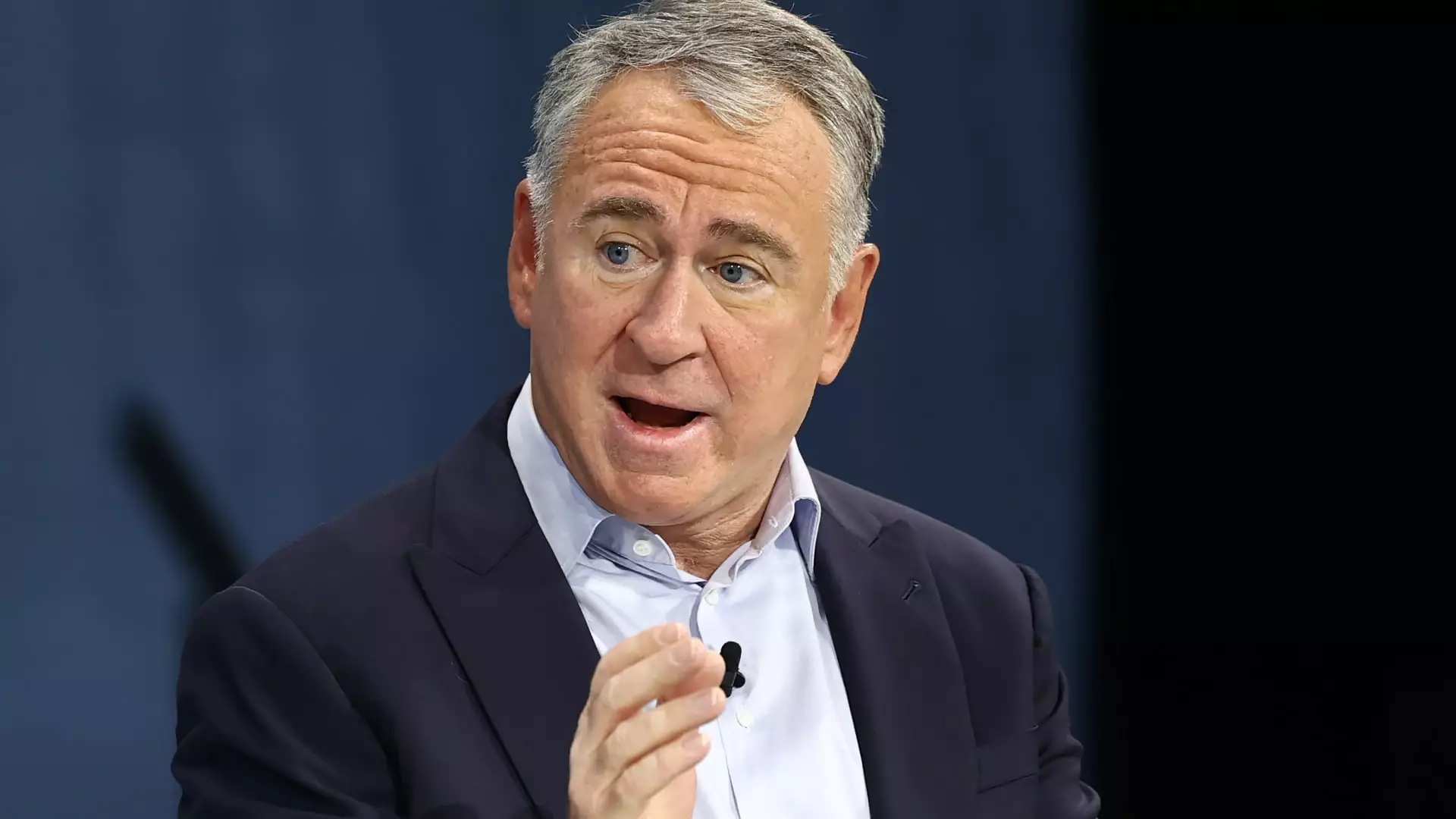In the realm of international business, trade policies wield significant influence, framing the economic relationship between nations and shaping the environment in which multinational corporations operate. Recent remarks by Citadel CEO Ken Griffin underscore the high stakes involved when leaders adopt aggressive rhetorical strategies in trade negotiations. With a background as a major player in both finance and politics, Griffin’s insights serve as a warning regarding the potential long-term ramifications of such an approach.
Ken Griffin articulated a compelling argument during the UBS Financial Services Conference, emphasizing that aggressive rhetoric from political leaders can reverberate through the business community, instigating uncertainty among CEOs and policymakers alike. He contends that statements and actions which may be perceived as combative fundamentally undermine the reliability of the U.S. as a trading partner. This sentiment is particularly pertinent in an era where globalized trade is paramount to economic stability.
With the signing of a significant tariff order by President Trump that imposes 25% tariffs on steel and aluminum imports, the implications of this belligerent trade stance are further laid bare. Griffin’s acknowledgment of the immediate damage inflicted by such actions indicates a broader concern: that such policies could deter investment over the long haul, particularly for multinational corporations attempting to navigate an unpredictable trade landscape.
Griffin specifically highlighted the dilemma facing multinationals tasked with planning their strategies over extensive timelines. The unpredictability stemming from current trade negotiations complicates their ability to make informed financial commitments. In industries requiring substantial capital investments over years or decades, the potential for disruptive trade policies raises alarms about the integrity of existing agreements among key trade partners.
Griffin’s concerns resonate within a wider conversation about crony capitalism, wherein alliances between government officials and business executives can distort fair market practices. When trade policies are shaped by protective tariffs and aggressive negotiation tactics, the economic reward systems may skew, favoring specific entities rather than promoting a level playing field for all.
In light of Griffin’s warnings, there is an urgent need for policymakers to engage in strategic diplomacy rather than resorting to bombastic rhetoric. The economic landscape is intricate, and stakeholders at all levels—business leaders, policymakers, and the workforce—will be affected by the decisions made at the top. By fostering an environment of collaboration and mutual respect, it is possible to mitigate the fears surrounding trade disruptions and safeguard the integrity of international trading relationships.
Griffin’s critiques are not merely reflections of economic concerns—they encapsulate a plea for rational and measured approaches to trade negotiations. As global markets evolve, leaders must navigate complexities with wisdom and foresight, understanding that the ramifications of their words and actions can extend far beyond their immediate context. The preservation of international trust and sustainable economic growth may very well depend upon it.

